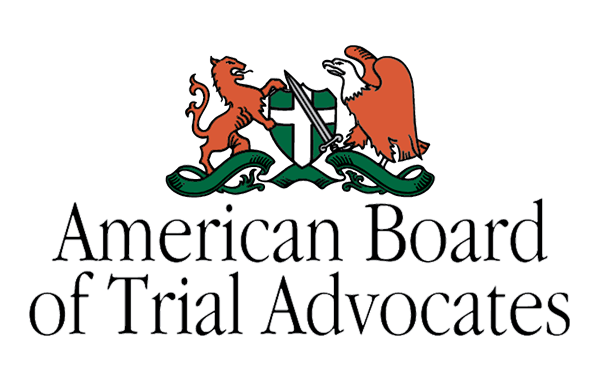Car accidents happen in Texas every day, often leaving people overwhelmed, scared, and unsure of what to do next. When someone is hurt in a car accident, gathering evidence is one of the most important steps they can take to protect themselves and their rights. Evidence is what tells the story of what happened and helps in showing who was responsible for the accident. This is especially important if someone wants to seek compensation for damages like medical bills, car repairs, or even pain and suffering. Knowing what types of evidence to gather and why it matters can make a big difference when trying to recover from an accident. At, Chavez Law Firm, we are here to guide you through the legal process and help you navigate the complexities of your case.








Why Gathering Evidence is Important
After a car accident, evidence is crucial for many reasons. First, it can help prove how the accident happened and who was at fault. In Texas, when someone is involved in a car accident, they need to be able to show that the other driver was responsible if they want to recover costs for their losses. Without solid evidence, it can become much harder to prove this in a way that holds up if the case goes to court.
Gathering evidence also helps keep the story clear. Memories can fade or become mixed up over time. Witnesses may forget details or mix up what they saw as days or weeks pass. By gathering evidence as soon as possible after the accident, people can ensure they have clear, accurate details of the accident that are fresh and reliable. Evidence gathered right away also stands as proof that cannot be easily questioned or doubted, which can be very helpful if the other driver or their insurance company tries to argue against the claim.
Types of Evidence That Can Help
Many types of evidence can make a difference after a car accident in Texas. Pictures are one of the simplest and most effective types of evidence. Photographs of the accident scene, damaged vehicles, road conditions, and any visible injuries are all valuable. These photos can show exactly what the scene looked like right after the accident. Pictures also allow people to see details they might not have noticed immediately, like skid marks on the road, damaged road signs, or even things like weather conditions that might have played a role.

Protecting Your Rights
Another important type of evidence is police reports. When police arrive at the scene of a car accident, they will often document what they see and hear, creating a report that includes details about the drivers, any witnesses, and possibly who might be at fault. Police reports can carry a lot of weight because they come from a neutral source that has no connection to the drivers involved.
Statements from witnesses are also helpful because they add another perspective on the accident. Witnesses are usually not involved directly, which means their stories are considered unbiased. Their accounts can back up what the victim says happened, or even provide additional details that the person involved may not have seen.
Medical records are another key part of the evidence collection. For anyone injured in a car accident, getting medical care is crucial, not only for their health but also for documenting the injuries caused by the accident. Medical records can show the types of injuries, the treatments received, and any ongoing care needed. This can be essential in proving that the accident caused physical harm, which supports claims for medical bills and other injury-related expenses.
How to Gather Evidence After a Car Accident
There are specific steps that someone involved in a car accident can take to gather evidence. The first thing to do is to stay calm and safe, making sure they are out of harm’s way and can think clearly. Once it is safe, taking pictures and videos of the accident scene, any vehicle damage, and injuries can capture what happened. The more images taken, the more evidence there is to show exactly what took place.
Talking to witnesses and getting their contact information is another helpful step. This includes people who may have seen the accident from the street, from another car, or even from nearby buildings. If they are willing, a person can ask them to describe what they saw and, if possible, take notes on these statements.
Calling the police to report the accident is also important. Once the police arrive, they will make an official report of the accident. People involved in the accident should share their own version of what happened with the police but should avoid saying anything that might sound like admitting fault, as this can hurt their case later. Getting a copy of the police report once it is available will provide a neutral source of information about the accident.
Anyone involved in a car accident should also seek medical care, even if they don’t think they are seriously hurt. Some injuries are not immediately obvious and can get worse if left untreated. Going to a doctor also ensures that any injuries are properly documented, which can be valuable evidence when trying to show the accident caused harm.
Keeping records of all expenses related to the accident is another useful step. This can include medical bills, repair costs, and any other expenses that come up because of the accident. Keeping these documents organized will make it easier to show the costs the person is facing and can help in getting fair compensation.
Block "videos-personal-injury" not found
Challenges in Gathering Evidence After a Car Accident
Gathering evidence after a car accident is not always easy, especially when someone is hurt or in shock. Many people are not prepared to gather evidence because they are focused on getting help or dealing with the stress of the situation. This can make it harder to collect information right away, which is why it can help to know what steps to take before an accident ever happens.
Sometimes evidence is lost simply because it is not gathered in time. This is common with witnesses, who may leave the scene before anyone has a chance to talk to them. In other cases, physical evidence like skid marks or car damage might change as time goes on. Acting quickly can help reduce the chances of losing valuable information that could make a difference later.
Even if someone gathers evidence, insurance companies may still try to argue against the claims. Insurance companies have their own processes and may push back against claims if they think there isn’t enough evidence. This is one reason why it is important to have strong, clear evidence that is hard to dispute. This can make a person’s claim stronger and put them in a better position if they need to negotiate with the insurance company.
The Role of Legal Help in Gathering and Using Evidence
Having a legal professional on your side can make a big difference in gathering and presenting evidence. They know what kinds of evidence are needed to build a strong case and can help gather any missing pieces that might be helpful. This can include talking to witnesses, getting additional documents, or working with other specialists to analyze the evidence that has been gathered. Having professional guidance can also help if the case goes to court, where having well-prepared evidence can strengthen the person’s position.
Legal help is also useful because lawyers understand how insurance companies work. They know the tactics insurance companies may use to question claims or lower the amount of compensation offered. With a legal representative, a person can be sure that their evidence is being used effectively and that their case is as strong as it can be.
How Evidence Helps with Compensation
Evidence can have a huge impact on the compensation someone receives after a car accident. When someone is seeking damages, they need to show not only that they were hurt but also how much their injuries have cost them. This is where medical records, repair bills, and other documents come into play. These records give a clear picture of the expenses the person has faced and helps show why they need compensation.
Compensation may cover a range of costs, including medical bills, car repairs, and even lost wages. Evidence can show the full extent of these losses and how they are directly related to the accident. For example, if a person’s car was severely damaged, photos of the wreck, along with repair bills, help support the request for fair compensation. This is why gathering evidence as soon as possible after a car accident is so important. It sets up a clear path to getting the financial help needed to move forward.
The Importance of Taking Action Right Away
Taking action immediately after a car accident in Texas can help protect a person’s rights. Gathering evidence right away ensures that nothing important is lost or overlooked. Even though gathering evidence might not be the first thing on a person’s mind, it is worth the effort for the help it can provide down the line. Every piece of evidence collected strengthens the case and increases the chances of a successful outcome.
If you or a loved one has been involved in a car accident in Texas, getting legal help can make all the difference. At Chavez Law Firm, we understand the importance of gathering the right evidence to support your case and work to ensure your rights are fully protected. Contact Chavez Law Firm today to get the support and guidance you need.



